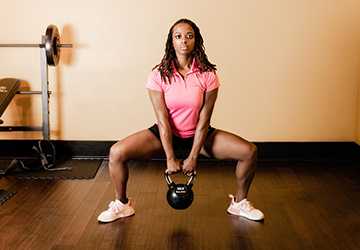Embarking on a fitness journey is a transformative endeavour beyond physical fitness, including mental resilience, discipline, and a commitment to sustainable habits. Whether new to fitness or a seasoned fitness enthusiast, success lies in a holistic approach that balances realistic goals, conscious decision-making, and long-term consistency. This comprehensive guide will give the top tips for a successful and sustainable fitness journey that delivers short-term results and promotes a lasting commitment to a healthier lifestyle.

1. Set realistic and measurable goals:
Well-defined goals:
Start your fitness journey by setting clear and realistic goals. Whether it's losing weight, building muscle or improving endurance – make your goals specific and achievable.
Breakdown goals:
Break down larger goals into smaller, manageable milestones. Celebrating these incremental successes keeps motivation high and provides a sense of accomplishment.
2. Develop a balanced exercise plan:
Incorporate diversity:
Incorporate a variety of exercises into your daily routine to avoid monotony. Include cardiovascular activities, strength training, flexibility exercises and activities you enjoy. This variety improves overall fitness and ensures that training stays exciting.
Progressive overload:
Gradually increase the intensity of your workout over time. Progressive overload, where the body is challenged with increasing demands, is critical to continued progress. This may include adjusting the weight, increasing the number of repetitions, or increasing the intensity of cardiovascular exercise.
3. Prioritize consistency over intensity:
Set up a routine:
Consistency is the cornerstone of a successful fitness journey. Establish a regular exercise program that fits your schedule and lifestyle. Maintaining a balance between frequency and intensity ensures your routine is sustainable over the long term.
Listen to your body:
Pay attention to your body's body and adjust your training accordingly. While pushing boundaries is crucial to progress, it's essential to recognize when rest and recovery are needed to prevent burnout and injury.
4. Mindful eating:
Balanced nutrition:
Support your fitness goals with a balanced, nutritious diet. Ensure you get enough protein, carbohydrates, healthy fats, vitamins and minerals. Food is not just fuel but an essential component of recovery and overall well-being.
Moisturizing:
Stay hydrated, as proper hydration is essential for optimal performance and recovery. Water supports nutrient transport, temperature regulation, and joint lubrication. Stay hydrated before, during and after exercise to keep your body functioning.
5. Get good sleep:
Prioritize rest:
Good sleep is an often underestimated aspect of a successful fitness journey. Aim for 7-9 hours of sleep per night to support recovery, muscle growth, and overall health. Create a comfortable sleeping environment and establish a bedtime routine.
Recovery days:
Incorporate rest and recovery days into your weekly routine. These days allow your body to recover, preventing fatigue and reducing the risk of overtraining. Activities such as stretching, yoga, or gentle walking can promote recovery.

6. Establish a support system:
Responsible partner:
Share your fitness goals with friends, family, or training partners who can support and encourage you. Responsible partners can make travel more enjoyable and create a sense of community.
Join the fitness community:
Discover local or online fitness communities where you can connect with like-minded people. Sharing experiences, tips, and challenges creates a supportive environment that increases motivation.
7. Self-education:
Continuous learning:
Stay informed about fitness principles, nutrition and health. Continuous learning allows you to make informed decisions and adapt your approach as your understanding of fitness evolves.
Consult a professional:
Consider consulting a fitness professional such as a personal trainer, nutritionist, or physical therapist. Their expertise can provide personalized insights, correct forms and strategies to optimize your fitness journey.
8. Flexibility of use:
Adapt to life changes:
Life is full of activity, and your fitness program should be adaptable. Be flexible and recognize that schedules, priorities, and circumstances may change. Adaptability builds resilience and prevents setbacks from hindering your progress.
Enjoy the process:
Shift your focus from solely results-oriented goals to enjoying the process of self-improvement. Find fun in your activities, celebrate small successes, and maintain a positive relationship with your fitness journey.
9. Monitor progress:
Tracking tools:
Monitor your progress with tracking tools like a fitness app, journal, or wearable device. Tracking provides tangible evidence of your success and helps identify areas for improvement. And increase motivation.
Regular assessment:
Evaluate your fitness goals regularly. Adjust your exercise, nutrition, or goals based on your progress. Regular evaluation ensures your fitness journey is dynamic and aligned with your ever-changing goals.
10. Celebrate success:
Get to know milestones:
Celebrate the small and big successes in your fitness journey. Recognizing milestones can promote a sense of accomplishment and reinforce the positive habits you develop.
Reward yourself:
Reward yourself thoughtfully for achieving your goals. Consider non-food rewards such as new workout gear, a massage, or a weekend getaway. Thoughtful rewards help create a positive association with your fitness success.
Diploma:
A successful and sustainable fitness journey is a multifaceted commitment beyond physical exertion. By setting realistic goals, working on consistency, maintaining a balanced lifestyle, and building a support network, you can pave the way for long-term success. Remember, your fitness journey is a personal development tied to your overall health and the joy of self-improvement. Enjoy every step of this transformative journey, be happy with your progress, and let this journey be a source of fulfilment and energy.






